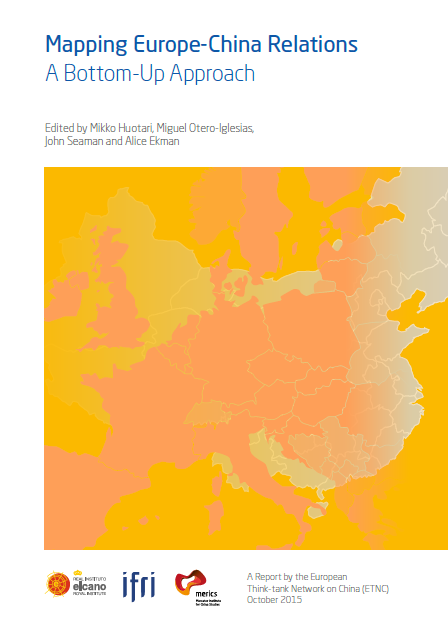
Practical information
Themes and regions
Related centers and programs
This seminar will present the findings of the first report produced by the European Think-tank Network on China (ETNC), a network of China experts from EU member states launched at the initiative of Ifri and Elcano in November 2014, and devoted to the study of Chinese foreign policy and EU-China relations.

Based on a precise examination of the various state-level, bilateral relationships and interests at play between China and EU countries, the seminar will underline the key points of convergence but also divergence existing between the China’s policies of member states. Starting from this bottom-up perspective, the discussion ultimately aims to consider how these member states and the EU as a whole can better coordinate their various approaches to China.
Speakers:
Alice Ekman, Head of China Research, Center for Asian Studies, Ifri
Miguel Otero, Senior Analyst for the International Political Economy, Elcano Royal Institute
Chair:
Vivien Pertusot, Head of Ifri Brussels
This seminar will be held in English without translation.
Find out more

Mapping Europe-China Relations: A Bottom-Up Approach. A Report of the European Think-tank Network on China ETNC, October 2015
As China’s rise continues to shape and shake the course of international affairs, and Europe enters a new chapter in its collective history, Europe-China relations are becoming more relevant, but also much more complex.




